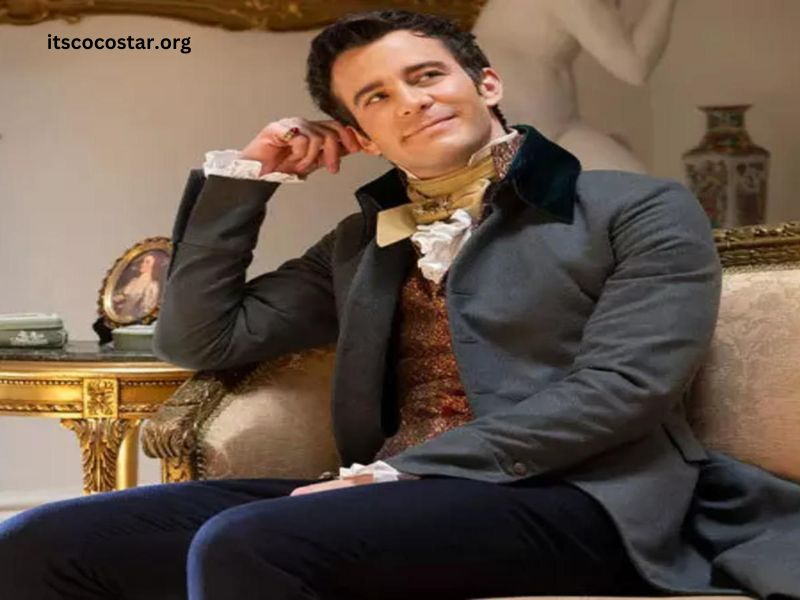Since its debut on Netflix in December 2020, Bridgerton has captivated audiences worldwide with its lush visuals, diverse casting, and compelling storytelling. Based on Julia Quinn’s series of novels, the show quickly became a cultural phenomenon, praised for its fresh take on the period drama genre. Despite its immense popularity and critical acclaim, one glaring oversight stands out: Bridgerton has not won any major awards. This article delves into the factors contributing to this surprising phenomenon.
The Nature of Awards Shows
To understand why Bridgerton has missed out on awards, it’s essential to examine the landscape of television awards. Shows are typically judged by a combination of factors, including storytelling, performances, direction, production design, and cultural impact. However, awards are often influenced by the whims of voters, trends in the industry, and the politics of visibility and representation.
The Competition
Bridgerton has faced fierce competition from other notable series during the same eligibility periods. Shows like The Crown, Succession, and The Queen’s Gambit have garnered significant attention and accolades. These series not only have established reputations but also tend to resonate with voting bodies who often favor traditional storytelling formats over innovative or genre-bending narratives.
Genre Bias
Awards shows have historically exhibited a bias against certain genres, particularly those that fall outside the realm of “serious” drama. Despite its critical acclaim, Bridgerton is often categorized alongside romantic comedies and fantasy, genres that have historically been overlooked by prestigious awards. The emphasis on traditional drama often leaves shows like Bridgerton in the shadows, even when they excel in areas such as character development and narrative complexity.
Timing and Release Strategy
The timing of a show’s release can significantly impact its chances at awards. Bridgerton was released during a crowded awards season, often overshadowed by shows that launched later or those tied to significant historical or cultural narratives. Furthermore, the pandemic affected how awards were voted on and how voters engaged with content, leading to inconsistencies in what types of shows received nominations and recognition.
Cultural Impact and Diversity
Bridgerton is notable for its commitment to diversity, featuring a racially diverse cast in roles typically reserved for white actors in historical dramas. While this has been praised by many viewers and critics, it may have created a divide in the traditional voting demographic. Some voters might favor shows that align with historical accuracy over those that take creative liberties with casting.
The Controversy of Representation
While Bridgerton champions diversity, it has sparked debates about the nature of representation in period dramas. Critics argue that the show, while progressive, risks diluting historical realities. This complexity might alienate certain voters who prefer a more traditional depiction of history, resulting in a hesitance to recognize the show in awards contexts.
The Show’s Tone and Style
Bridgerton is marked by its vibrant, whimsical tone and anachronistic music choices that blend classical and contemporary sounds. While this creative choice has won the hearts of many viewers, it may not resonate with award voters who often favor more somber, traditional approaches to storytelling. The show’s unique blend of humor, romance, and drama may not fit neatly into the categories that awards typically celebrate.
Critical Reception vs. Awards Recognition
Though Bridgerton has received positive reviews and boasts a strong fan base, critical reception does not always translate to awards success. The show has received nominations for various categories, including Primetime Emmys and Golden Globes, but these nominations have not resulted in wins. This dissonance raises questions about the criteria used by awards committees.
The Role of Industry Politics
The entertainment industry is rife with politics, and networking plays a crucial role in awards recognition. Shows that have strong backing from influential producers, networks, or talent often fare better in awards races. Bridgerton, despite being a Netflix powerhouse, may not have the same level of industry support compared to more established or critically revered productions.
The Impact of Awards Campaigns
Award campaigns can significantly influence a show’s chances of winning. A well-funded, strategic campaign can draw attention and sway votes, highlighting specific aspects of a show to align with voters’ preferences. While Bridgerton has had a presence in the awards circuit, it may not have had the same level of aggressive campaigning as some of its competitors.
Audience Reception vs. Critical Acclaim
Bridgerton enjoys a dedicated fan base and has performed exceptionally well in viewership ratings. However, the distinction between audience reception and critical acclaim can be a double-edged sword. While fans adore the show’s romance, humor, and aesthetics, critics may dissect its narrative flaws, leading to mixed reviews that can impact its standing with awards committees.
The Cult of the “Prestige” Show
The concept of the “prestige” show has emerged, often characterized by darker themes, complex narratives, and character-driven plots. While Bridgerton offers a nuanced take on romance and social dynamics, its playful tone may lead some to categorize it as less serious compared to its more somber counterparts, resulting in a lack of recognition in the awards circuit.
The Future of Bridgerton
As Bridgerton continues to release new seasons, its chances for awards recognition may evolve. The show’s unique blend of romance, drama, and humor might eventually resonate with a broader audience and voting body as trends in the industry shift. Additionally, the growing emphasis on diversity and representation in storytelling could work in Bridgerton’s favor as awards bodies increasingly recognize the importance of inclusive narratives.
Potential for Future Wins
The upcoming seasons of Bridgerton could address some criticisms while continuing to push boundaries in representation and storytelling. As more diverse stories gain traction, Bridgerton may find itself in a better position to compete for major awards.
The Role of Fan Engagement
Fan engagement can play a significant role in shaping a show’s legacy. Bridgerton has a passionate and vocal fan base that can advocate for the show and draw attention to its strengths. This engagement could influence award bodies to take a closer look at the series and potentially recognize it in the future.
Conclusion
In conclusion, Bridgerton‘s lack of major awards recognition is a multifaceted issue involving competition, genre biases, cultural representation, and industry politics. Despite its success and popularity, the show operates in a complex environment where critical acclaim does not always lead to accolades. As the landscape of television continues to evolve, Bridgerton remains a significant player, and its journey may yet yield the recognition it deserves in the future. The series exemplifies the changing dynamics of storytelling and representation, challenging norms and expanding the boundaries of what period dramas can achieve. With its unique charm and innovative approach, Bridgerton may yet find its moment in the spotlight when it comes to awards recognition.







